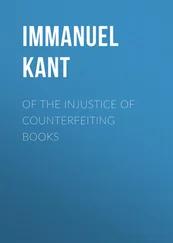Immanuel Kant - The Greatest Works of Immanuel Kant
Здесь есть возможность читать онлайн «Immanuel Kant - The Greatest Works of Immanuel Kant» — ознакомительный отрывок электронной книги совершенно бесплатно, а после прочтения отрывка купить полную версию. В некоторых случаях можно слушать аудио, скачать через торрент в формате fb2 и присутствует краткое содержание. Жанр: unrecognised, на английском языке. Описание произведения, (предисловие) а так же отзывы посетителей доступны на портале библиотеки ЛибКат.
- Название:The Greatest Works of Immanuel Kant
- Автор:
- Жанр:
- Год:неизвестен
- ISBN:нет данных
- Рейтинг книги:3 / 5. Голосов: 1
-
Избранное:Добавить в избранное
- Отзывы:
-
Ваша оценка:
The Greatest Works of Immanuel Kant: краткое содержание, описание и аннотация
Предлагаем к чтению аннотацию, описание, краткое содержание или предисловие (зависит от того, что написал сам автор книги «The Greatest Works of Immanuel Kant»). Если вы не нашли необходимую информацию о книге — напишите в комментариях, мы постараемся отыскать её.
Contents:
Introduction:
IMMANUEL KANT by Robert Adamson
KANT'S INAUGURAL DISSERTATION OF 1770
Three Critiques:
THE CRITIQUE OF PURE REASON
THE CRITIQUE OF PRACTICAL REASON
THE CRITIQUE OF JUDGMENT
Critical Works:
PRELOGOMENA TO ANY FUTURE METAPHYSICS
FUNDAMENTAL PRINCIPLES OF THE METAPHYSIC OF MORALS
THE METAPHYSICS OF MORALS
Philosophy of Law; or, The Science of Right
The Metaphysical Elements of Ethics
Pre-Critical Works and Essays:
DREAMS OF A SPIRIT-SEER
IDEA OF A UNIVERSAL HISTORY ON A COSMOPOLITICAL PLAN
Preface to THE METAPHYSICAL FOUNDATIONS OF NATURAL SCIENCE
PERPETUAL PEACE: A Philosophical Essay
OF THE INJUSTICE OF COUNTERFEITING BOOKS
Criticism:
CRITICISM OF THE KANTIAN PHILOSOPHY by Arthur Schopenhauer
Immanuel Kant (1724-1804) was a German philosopher, who, according to the Stanford Encyclopedia of Philosophy is «the central figure of modern philosophy.» Kant argued that fundamental concepts of the human mind structure human experience, that reason is the source of morality, that aesthetics arises from a faculty of disinterested judgment, that space and time are forms of our understanding, and that the world as it is «in-itself» is unknowable. Kant took himself to have effected a Copernican revolution in philosophy, akin to Copernicus' reversal of the age-old belief that the sun revolved around the earth.












